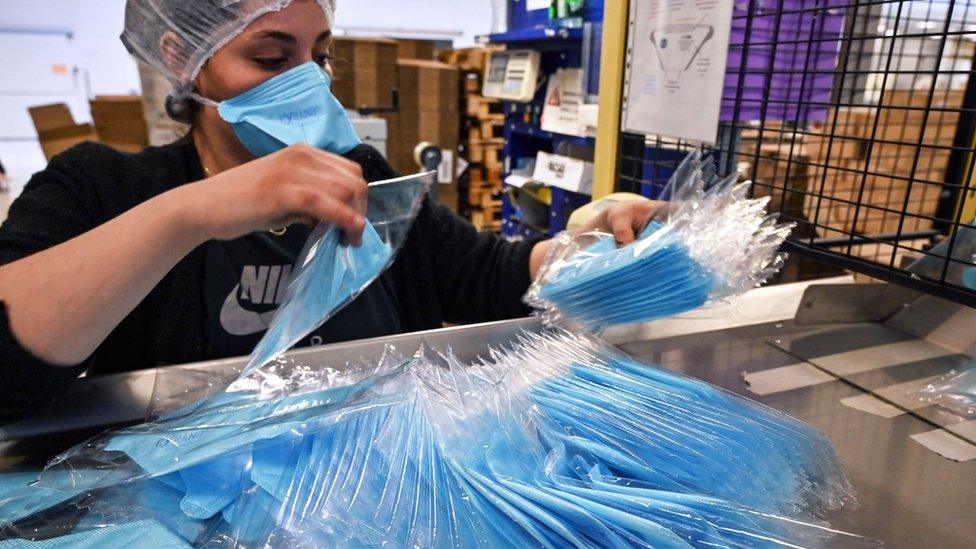Coronavirus: Unexplained West Coast cases raise fears in US
- Published
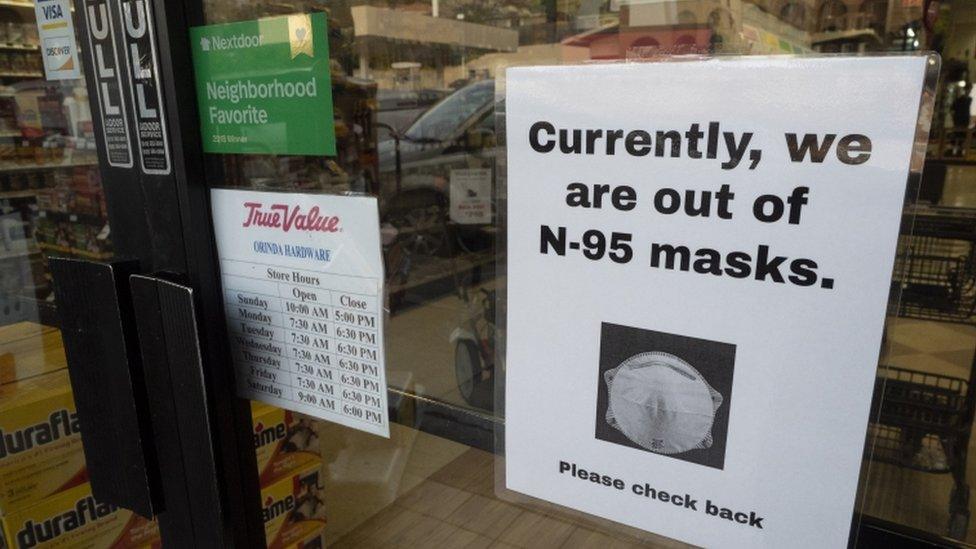
Protective masks are selling fast in parts of California
Officials on the US West Coast have reported three unexplained coronavirus cases, raising concerns the virus could be spreading within the community.
The patients - in California, Oregon and Washington State - have no known connection to a badly hit country.
A total of 59 coronavirus cases have been confirmed in the US, according to the World Health Organization (WHO).
Meanwhile South Korea, which has the highest number of cases outside China, mobilised the army on Saturday.
Soldiers are disinfecting large parts of Daegu, the south-eastern city that has been at the centre of the country's coronavirus outbreak.
South Korea on Saturday reported a sharp rise in the number of cases of the Covid-19 disease. It now stands at 3,150. The respiratory illness has killed 17 people in the country so far.
What is happening in the US?
On Friday health officials in California's Santa Clara County said an older woman with chronic health conditions had been diagnosed with Covid-19.
Officials say she is not known to have travelled to a country badly affected by the virus or been in contact with a person who had.
"This new case indicates that there is evidence of community transmission but the extent is still not clear," said Dr Sara Cody, director of the Santa Clara County Public Health Department.
Watch how germs spread and how you can prevent it
Oregon health officials said a school employee in Clackamas County had tested positive for the virus. In Washington State, authorities said another case concerned a high school student in Snohomish County.
Neither had any contact with a known case nor any history of travel to an affected region.
These bring the total of unexplained cases in the country to four, after another such case was reported in California on Tuesday.
The Democratic Party has criticised President Donald Trump's response to the outbreak, arguing that he has contradicted his own health officials and tried to downplay the severity of the virus.
'This is their new hoax' - Trump
On Friday, the president hit back at Democrats, accusing them of politicising the outbreak. "This is their new hoax," he told a rally in South Carolina.
He accused Democrats of advocating a policy of open borders and said this was "a direct threat to the health and wellbeing of all Americans".
Are those the first untraced cases?
No. Earlier this week a patient who had no known connection with an affected region died in France.
On Friday, a patient diagnosed with the virus in England was said to be the first to catch it in the UK.
The latest developments came as the WHO on Friday upgraded the global risk of the outbreak to its highest level.
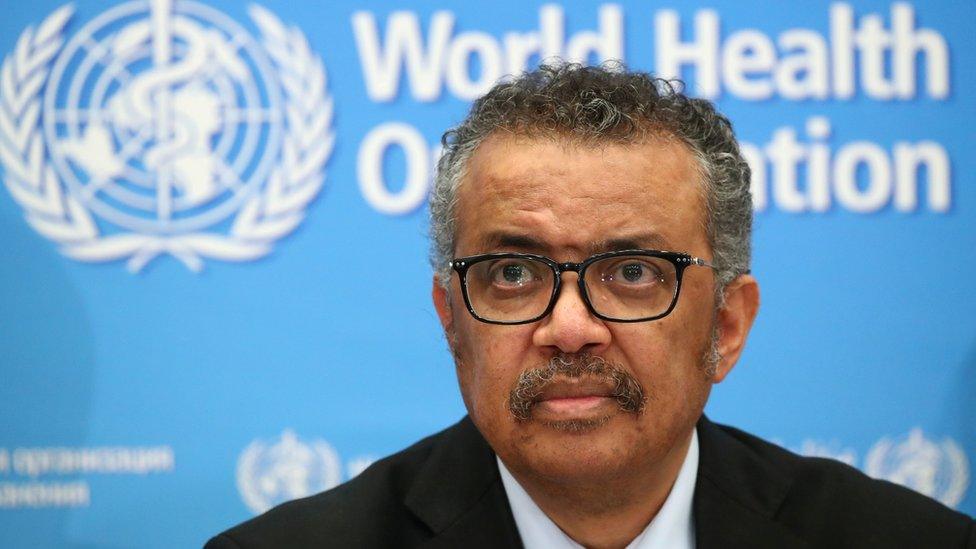
WHO head Tedros Adhanom Ghebreyesus said fear was still the biggest challenge
But the UN body said there was still a chance of containing the virus if its chain of transmission was broken.
WHO head Dr Tedros Adhanom Ghebreyesus also stressed that fear and misinformation were the biggest challenges to overcome.
"Our greatest enemy right now is not the #coronavirus itself. It's fear, rumours and stigma. And our greatest assets are facts, reason and solidarity," he wrote on Twitter.
What's happening in South Korea?
The spread of the virus there has been linked to the fringe Christian group Shincheonji Church.
Authorities believe members infected one another during services in Daegu and then fanned out around the country, apparently undetected.
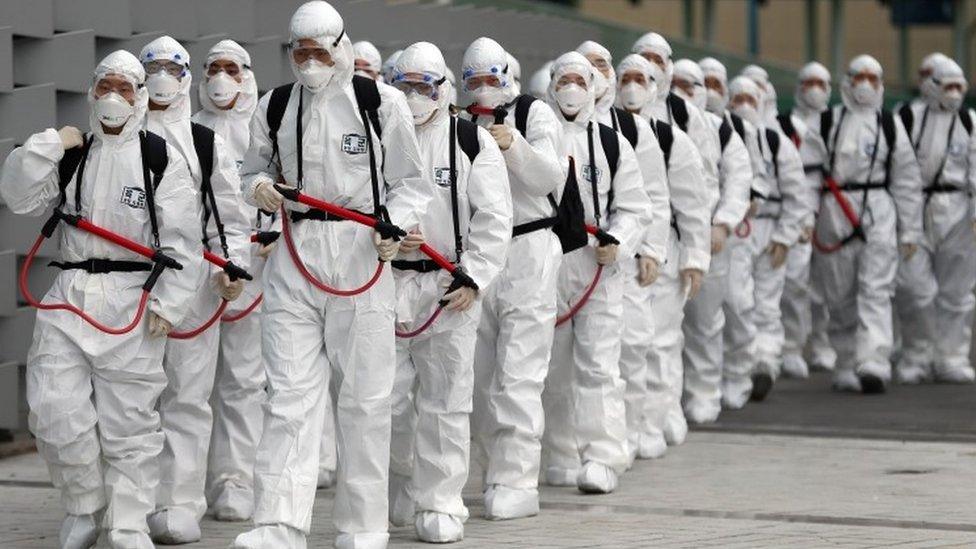
The South Korean army has been spraying disinfectant in public areas
South Korean health officials believe that a 61-year-old member of the sect who last week tested positive for the virus was among the first to be infected.
The female patient initially refused to be transferred to a hospital to be tested and is known to have attended several church gatherings before testing positive.
Officials warned on Saturday that they a expect a large number of new coronavirus cases to be reported in Daego as authorities carry out intensive tests on followers of the Shincheonji Church there, according to Yonhap news agency.
As of Saturday morning, members of the church accounted for about half of the cases in the country.
In neighbouring North Korea, leader Kim Jong-un has warned of "serious consequences" if his officials fail to prevent an outbreak.
What other developments have there been?
More than 50 countries have now reported cases of coronavirus
More than 83,650 cases of coronavirus have been confirmed globally, the vast majority of them in China, where 78,961 people have been infected and 2,791 have died
Iran on Saturday said the total number of infections there had reached 593 and 43 patients had died
Factory activity in China fell to a record low in February as manufacturers closed their operations to contain the spread of the disease
Qatar reported its first case, after a 36-year-old Qatari woman who was evacuated to the country from Iran tested positive for the virus, according to state media
Five Italian Serie A football games have been postponed, including a Juventus match against rivals AC Milan. The games were going to be played behind closed doors, but the league decided to call them off on Saturday
France reported a jump in confirmed cases, with the total now standing at 73, compared to 57 the previous day. The country also temporarily banned gatherings of more than 5,000 people "in confined spaces"
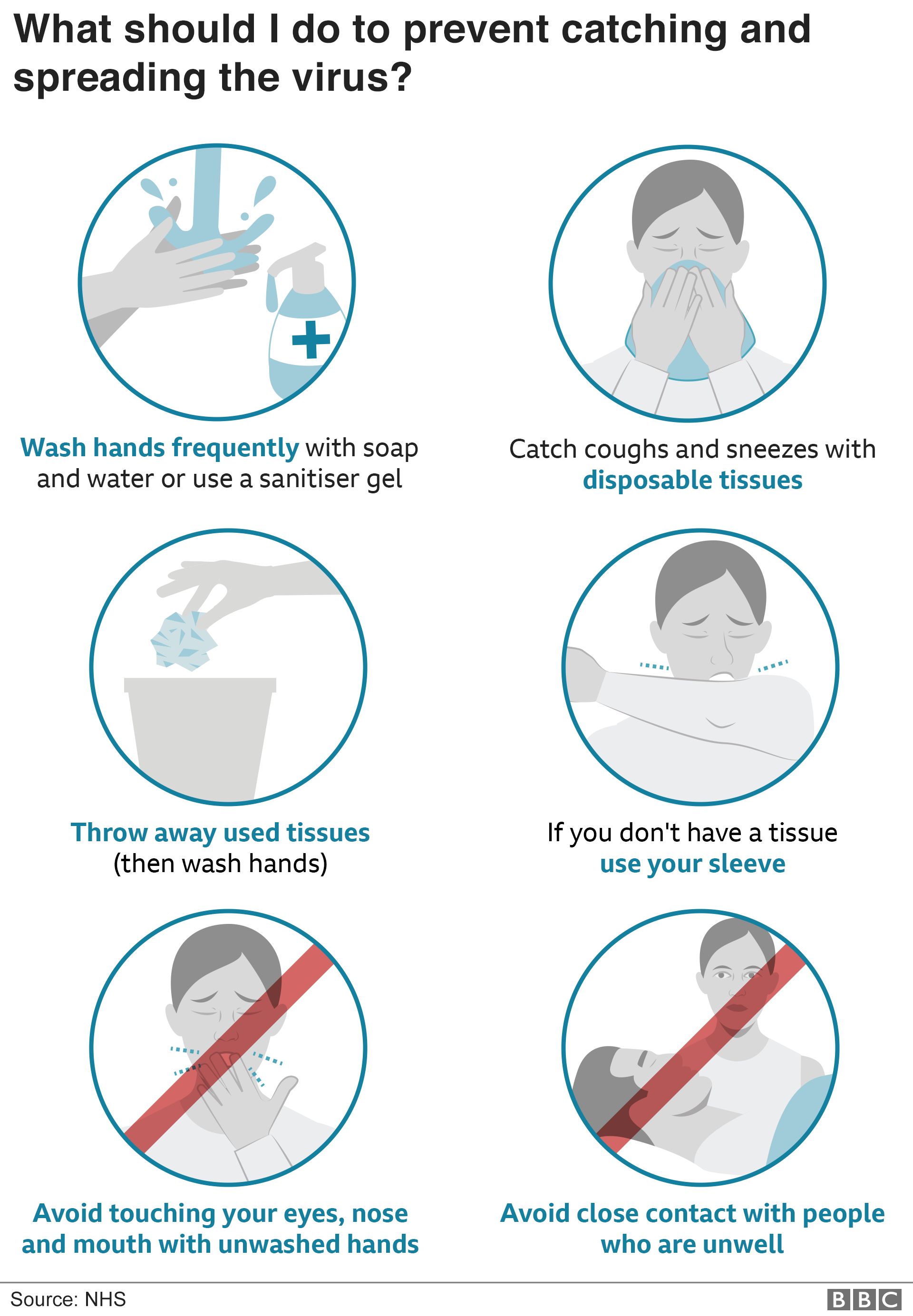


Have you been affected by the coronavirus? Or do you have any information to share? Get in touch by emailing haveyoursay@bbc.co.uk, external.
Please include a contact number if you are willing to speak to a BBC journalist. You can also contact us in the following ways:
WhatsApp: +44 7756 165803
Tweet: @BBC_HaveYourSay, external
Send pictures/video to yourpics@bbc.co.uk, external
Please read our terms & conditions and privacy policy
- Published28 February 2020
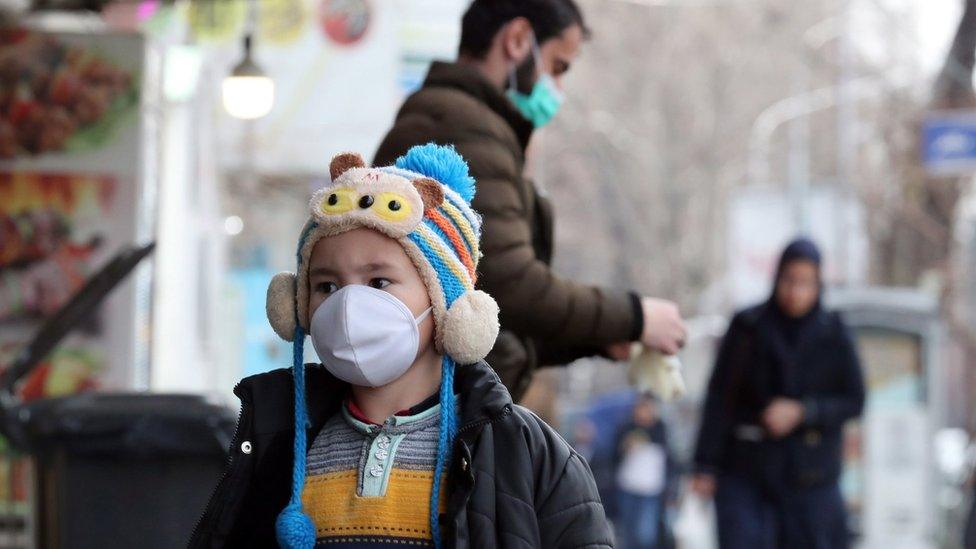
- Published28 February 2020
